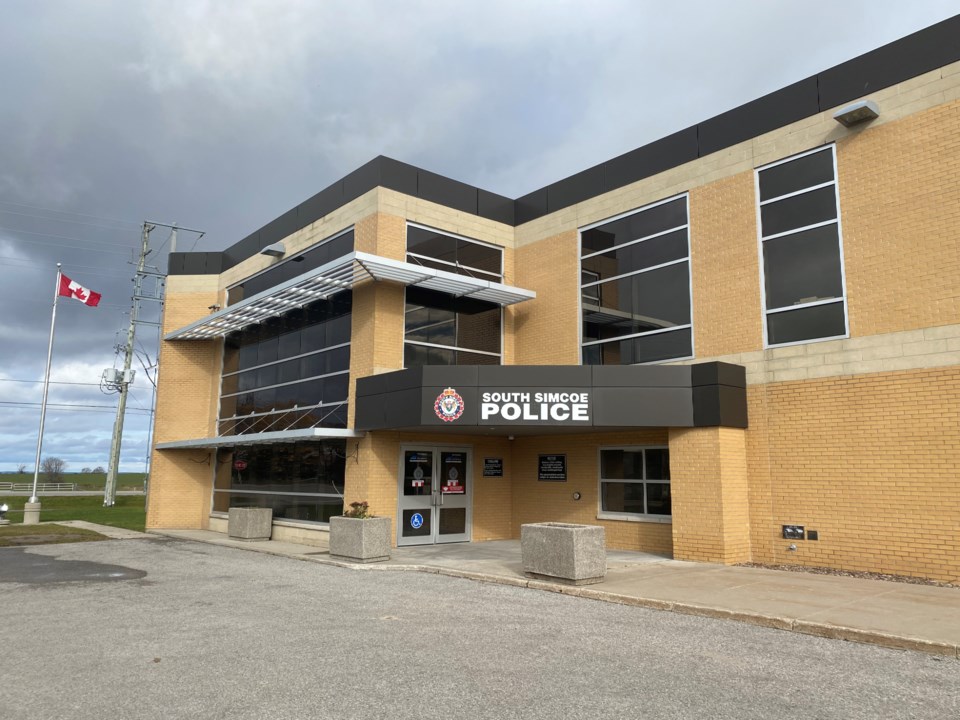A municipal police service like the South Simcoe Police has three basic sources of revenue – taxation, revenues generated by activities such as record checks for prospective volunteers and employees, and grants.
During Wednesday’s meeting of the Bradford West Gwillimbury-Innisfil Police Services Board, Police Chief Andrew Fletcher provided an update on the various grants available to the service, and “a snapshot of some of the money available to us.”
Grants included:
. Ministry of the Attorney General’s Civil Remedies Grant Program – up to $100,000 per project ($200,000 per organization) for police services to deliver local, community-based projects to support victims of crime and prevent unlawful activities. Funding can be used for crisis counselling, public education, and crime prevention and research. South Simcoe Police applied for $40,000, towards a Crime Analyst position; the grant was declined.
. Ministry of the Solicitor General’s Community Safety and Policing Grant, offered on a three-year cycle to provide greater sustainability. Funding is available to address both local priorities, and provincial priorities, by paying wages of existing staff.
South Simcoe Police received $240,000 per financial year, for 2020-2021 and 2021-2022 (provincial grants run from April 1 to Mar. 31); the amount will increase to $299,781 in 2022-2023 and 2023-2024 through the Local Priorities stream.
Through the Provincial Priorities stream, the service received $50,500 in 2020-2021, $100,000 in 2021-2022, to cover human trafficking investigations only.
. Ministry of the Solicitor General’s Proceeds of Crime Front-Line Policing Grant, offered on a three-year cycle for projects focusing on gun and gang violence, sexual violence and harassment, and/or human trafficking. South Simcoe Police are looking at $97,183 in 2020-2021, $98,670 in 2021-2022 and $99,425 in 2022-2023, to offset analyst wages and overtime in investigating guns and gangs.
. Ministry of the Solicitor General’s Reduce Impaired Driving Everywhere (RIDE) Grant program, a two-year program to support enforcement and spot checks. Funding is provided at the end of the program year, based on final reports, to offset overtime costs related to RIDE checks. South Simcoe received $15,593 in 2020-2021, and will receive $15,562 in 2021-2022.
. Ministry of the Solicitor General’s Ontario Closed Circuit Television (CCTV) Grant program – one time funding of up to 50 percent of the cost of expanding the CCTV system, as part of the Ontario Guns, Gangs and Violence Reduction Strategy. South Simcoe Police did not apply for this grant.
. Mobile Crisis Response Team Enhancement Grant – a new grant offered by the Ministry of the Solicitor General of up to $120,000 per fiscal year, for a two-year cycle. Funds are designed to increase the full-time equivalent number of mental health and addiction workers in a Crisis Response Team, and do not impact the police budget. An application has been submitted for $120,000 per year; it is pending.
The South Simcoe Police expect to get the annual $8,000 CISO (Criminal Intelligence Service Ontario) membership support grant for 2022, and as a member of a police communications network, hope to receive a grant of $76,174 for 2021-2022, to cover costs for cell phone extraction software. The application has been submitted.
The report noted that some items have been identified by the province as not being eligible for grants – including travel, facial recognition technology, and body worn cameras.
The South Simcoe Police Service continues to apply for grants, although “It is a ton of work to write grant applications,” noted Deputy Police Chief John Van Dyke, and the process is not always successful.
Applications must demonstrate need, detail the activities that will be undertaken and the resources that will be dedicated, outline partnerships, equipment that will be purchased, the expected outcomes, and the budget, and provide updates.
“Thankfully, the government is moving towards a multi-year grant program,” said Chief Fletcher, which means that services no longer need to reapply for each grant every year, once successful.
The report presented to the Board also pointed out that “many of the grants are a competitive application process making it difficult to demonstrate sustainability of the funding streams in each budget year.”



